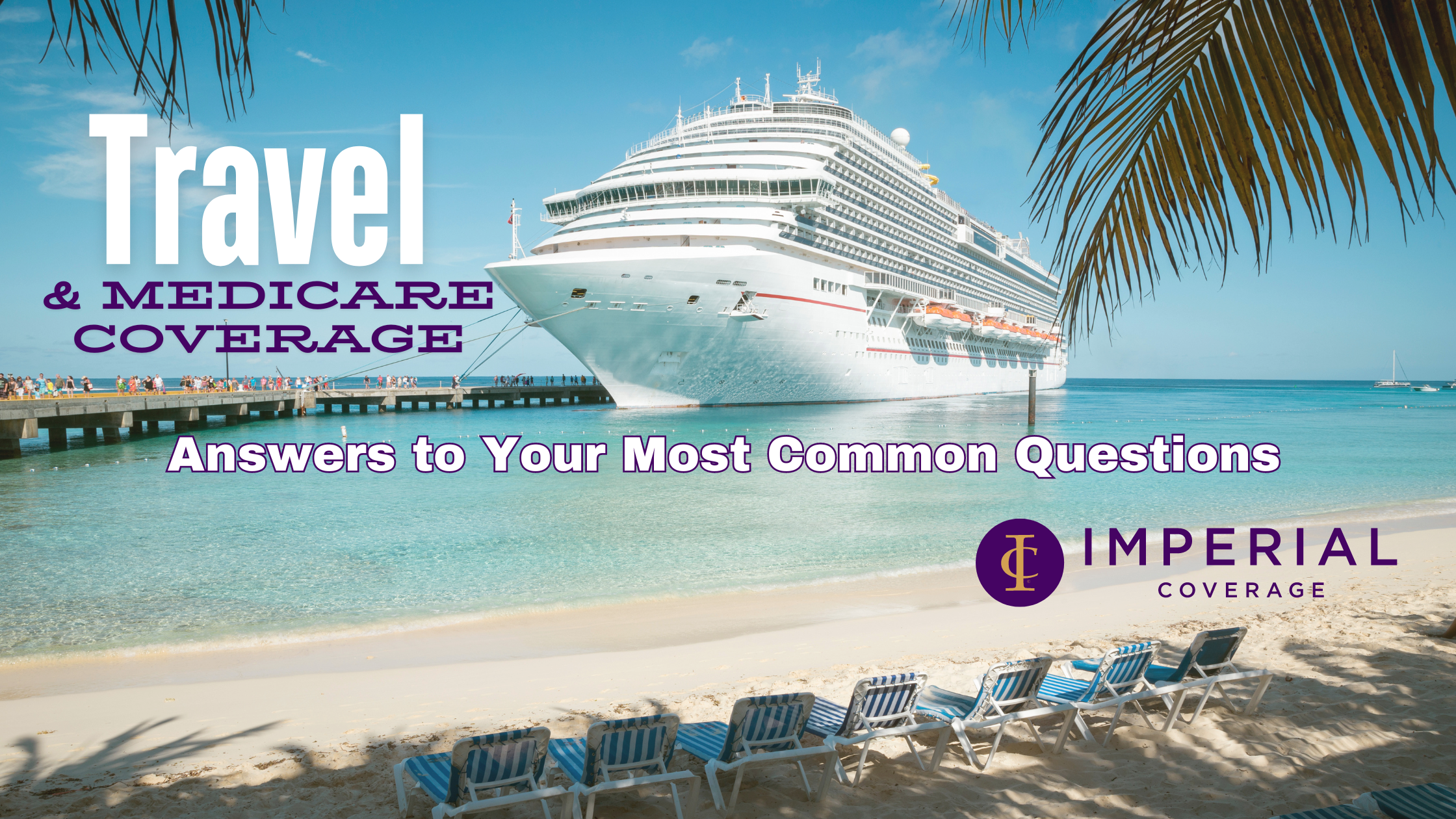Answers to Your Most Common Questions
Summer is the perfect time for seniors to embark on new adventures, whether exploring national parks across the U.S. or visiting exotic destinations abroad. As you plan your travels, understanding how your Medicare coverage works away from home is crucial. Here, we address the most frequently asked questions about Medicare and travel, ensuring you’re well-prepared for any health-related needs during your summer journeys.
Coverage Outside the U.S.: Does Medicare Cover Medical Care While I’m Traveling Abroad?
A: Original Medicare generally does not cover healthcare services outside the U.S., except in limited situations such as emergencies in Canada or when traveling through Canada on your way to Alaska from another U.S. state.
Medicare Advantage Plans: What About Travel Coverage?
A: Some Medicare Advantage plans offer travel benefits that extend beyond emergency and urgent care. These benefits can include coverage for routine health care services whether you are vacationing within the U.S. or abroad. It’s essential to consider that coverage details, rules, and limitations can vary significantly between plans. When selecting a Medicare Advantage plan, ensure it meets your travel needs by asking:
- What emergency or routine health care services are covered if I vacation in the U.S. or out of the country?
- Do I have to seek services with specific providers?
- How long can I be away from home and still receive coverage?
- Will this plan cover both domestic and international travel?
Prescription Drugs Abroad: Does Medicare Cover Them?
A: Medicare Part D does not cover drugs purchased outside the U.S., but certain travel-related vaccines might be covered. Medicare Advantage plans do no cover prescription medicines or routine health care services overseas. This means you might be paying 100% of the costs of care.
Using Medigap Policies for Travel: What Do You Need to Know?
A: Medigap (Medicare Supplement Insurance) policies provide emergency health coverage for the first 60 days of your trip outside the U.S. During this period, the policy typically covers 80% of the costs for medically necessary emergency care, as defined by Medicare. It’s important to note that Medigap plans are not designed to cover non-emergency medical services or surgeries abroad. Instead, they aim to stabilize your condition for transport back to the U.S.
Can I Use Telehealth Services While Traveling?
A: Some Medicare Advantage plans offer telehealth services that allow you to consult with healthcare providers remotely. Check with your plan to see if telehealth services are available while you’re traveling within the U.S. or abroad.
What Should I Do If I Need Medical Care While Traveling Abroad?
A: If you need medical care outside the U.S., you generally need to pay for the services upfront. Foreign hospitals are not required to file Medicare claims for your travel medical costs. You’ll need to submit an itemized bill to Medicare for your doctor, inpatient, and ambulance services if you’re admitted to a foreign hospital under specific circumstances and the hospital does not file Medicare claims for you.
Travel Insurance Options: Should You Consider Additional Coverage?
A: Due to limited Medicare travel coverage, many seniors opt for supplemental travel insurance. Review policy terms carefully.
Cruise Ship Coverage: What’s Covered by Medicare?
A: Original Medicare (Parts A and B) and Medicare Advantage Plans may cover medically necessary health care services on a cruise ship if the ship is in U.S. territorial waters or within six hours of a U.S. port when the services are received.
Does Medicare Cover Emergency Air Transportation Back to the U.S.?
A: Medicare generally does not cover emergency air transportation (medical evacuation) from a foreign country to the U.S., except in very limited circumstances where the transportation is considered medically necessary and is provided as part of an inpatient hospital stay that Medicare covers.
Planning Ahead for Emergencies: What Should I Include in My Medical Travel Kit?
A: When traveling, it’s essential to pack a medical travel kit with essentials like medications, copies of insurance cards, emergency contacts, and a list of allergies. Being prepared can help ensure you’re ready for any unexpected health situations that may arise during your trip.
As you plan your travels, it’s important to keep in mind how your Medicare coverage works outside of your home area. Always check with your plan beforehand to understand what’s covered and consider additional travel insurance for added peace of mind. Being prepared ensures you can focus on enjoying your trip without worrying about unexpected medical costs.
If you’d like to review your plan before your next travel, please contact our office today at (631) 738-6760 and we would be happy to assist you in ensuring you fully understand your coverage before you set sail onto your next adventure!
Bon Voyage!







